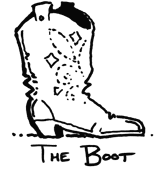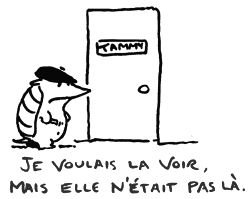Tense / Aspect / Mood / Voice
Imparfait: formation
The imperfect tense (l’imparfait), one of several past tenses in French, is used to describe states of being and habitual actions in the past. It also has several idiomatic uses.
stem
The stem of the imparfait is the first person plural (nous) form of the present tense, minus the -ons. The imparfait stem is regular for all verbs except être:
| verb | present tense ‘nous’ form |
imparfait stem |
| -er verbs: parler | nous parlons | parl- |
| -ir verbs: finir | nous finissons | finiss- |
| -re verbs: descendre | nous descendons | descend- |
| faire | nous faisons | fais- |
| prendre | nous prenons | pren- |
| partir | nous partons | part- |
| être | nous sommes | ét- |
endings
To the stem, add the endings -ais, –ais, -ait, -ions, -iez, and -aient. Listen carefully to the pronunciation of the verbs danser, finir and être in the imparfait tense. Note that -ais, -ais, -ait, and -aient are all pronounced alike. That means that the singular forms and 3rd person plural (the boot) all sound the same!

| danser ‘to dance’ | |
| je dansais | nous dansions |
| tu dansais | vous dansiez |
| il / elle / on dansait | ils / elles dansaient |
| finir ‘to finish’ | |
| je finissais | nous finissions |
| tu finissais | vous finissiez |
| il / elle / on finissait | ils / elles finissaient |
| être ‘to be’ | |
| j’étais | nous étions |
| tu étais | vous étiez |
| il / elle / on était | ils / elles étaient |
Stem changing verbs like voyager and commencer add an e or ç to maintain the soft g or s sound, before imparfait endings which begin with a (je voyageais, tu voyageais, il / elle / on voyageait, ils / elles voyageaient), in other words, before all forms except nous and vous (nous voyagions, vous voyagiez).
The imparfait of pronominal verbs is regular, with the addition of the reflexive pronoun:
| s’amuser ‘to have fun’ | |
| je m‘amusais | nous nous amusions |
| tu t‘amusais | vous vous amusiez |
| il / elle / on s‘amusait | ils / elles s‘amusaient |
The negation is formed as usual by placing ne … pas around the conjugated verb: Je ne dansais pas (I wasn’t dancing / I didn’t used to dance), Tu ne t’amusais pas (You weren’t having a good time / You didn’t used to have a good time).
Listen to Tex describing his morning:
| Tex: Je suis allé chez Tammy ce matin. Je voulais la voir, mais elle n’était pas chez elle. J’avais un cadeau à lui donner. Je ne pouvais quand même pas le laisser devant sa porte! Donc je l’ai offert à Bette! J’espère qu’elle l’aimera. | Tex: I went to Tammy’s this morning. I wanted to see her, but she was not home. I had a present to give her. I could not really leave it outside her door! So I gave it to Bette! I hope she will like it. | |
| Joe-Bob: Bravo! Quel tombeur tu fais! | Joe-Bob: Bravo! What a Casanova you are! |


